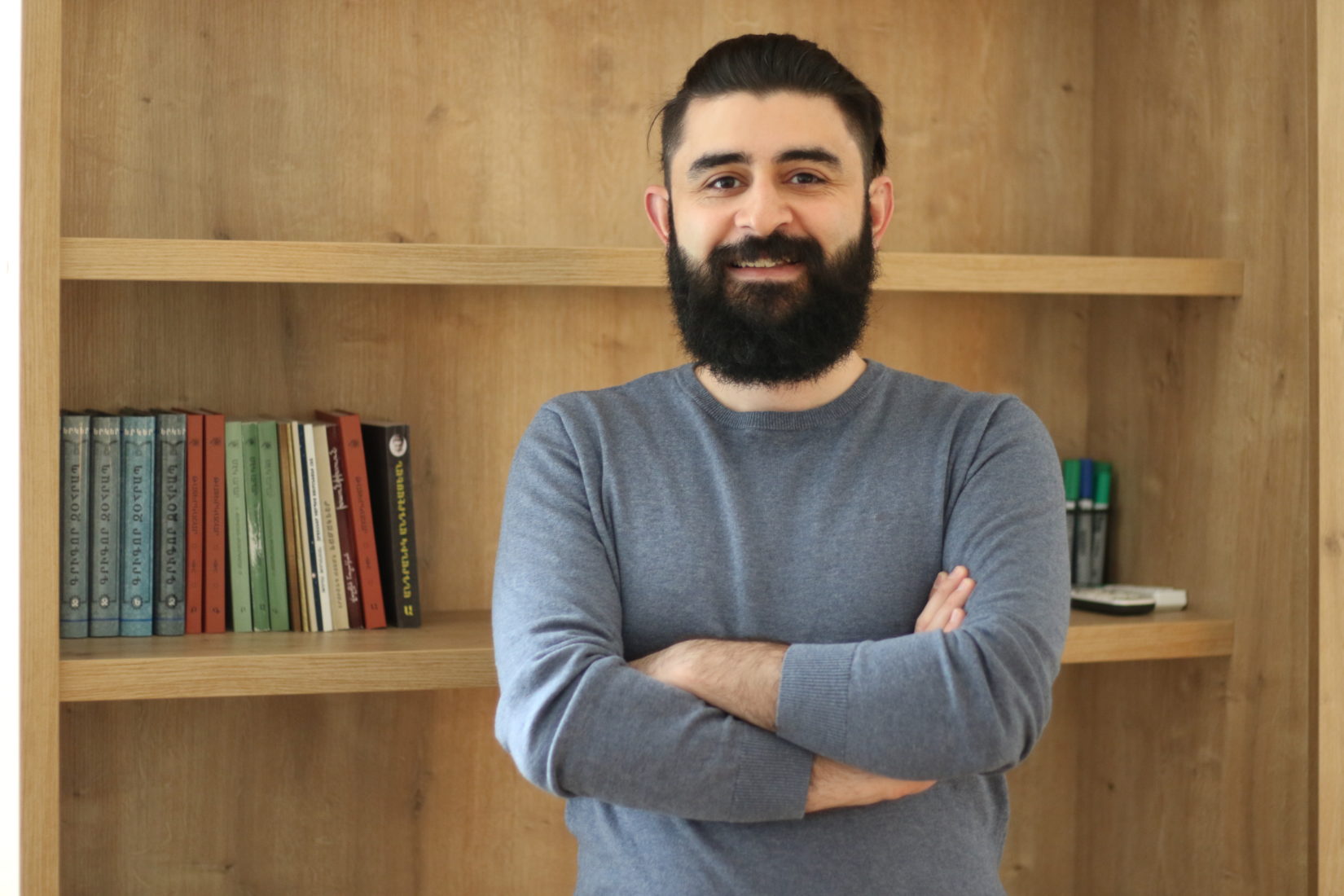Samvel likes to keep busy. With a master’s degree in Public Health from the American University of Armenia, he currently works for the non-government organisation Armenian EyeCare Project. On his free time, he volunteers to help people affected by the recent military escalation.
Still, Samvel believes he can do more, which was one of the reasons he applied to the Swedish Institute Academy for Young Professionals (SAYP) in 2020. He saw the programme’s curriculum, structure and ambitions as a perfect fit to his own needs.
-The Academy helped me understand how a human rights-based approach might make our projects more beneficial to the people we try to help. This is where the programme filled my knowledge gaps the most. It’s a new perspective for public health workers in Armenia.’
But SAYP did more than fill knowledge gaps. Even though the programme had to be kept online this year due to the global pandemic, Samvel thought the organisers did a stellar job creating a friendly and safe environment.
-Apart from professional experience exchange, we managed to become a part of a friendly group, and we got to know each other surprisingly well. Both participants and lecturers. Everyone there was very accepting, leaving us space to discuss. We even heard criticism of the Swedish system, so we knew it was very honest and open.’
The friendly atmosphere continued also after the programme, through the SI Alumni network.
-Having this network has improved my own work. It’s also cool to have friends in other countries for when you travel. SAYP was really successful in connecting us as a group and making us feel comfortable, so even if we only met online, I would consider most participants friends.’
Just weeks after the end of the programme, Samvel and a fellow participant from Ukraine started a joint project about internally displaced people. If the project is approved for funding, they are going to arrange education sessions for the displaced people, teaching them about their human rights.
Samvel found that the programme had a high level of professionalism and maximised the takeaways for him and his fellow students. Samvel’s timing was also perfect, as he started his new job in the middle of the programme.
-I got my current job right after we had covered decentralisation. Post-Soviet states were highly centralised, and now we are in the process of decentralisation. I could take things from the programme and use it to advocate within my group at work. I also brought new ideas about wider cooperation and gender mainstreaming. Not only to my job, but also to friends and colleagues who work in the public sector.’
Samvel thought the structure and the logic of the programme was quite smart, with a high level of professionalism. It was obvious the lecturers knew both the theoretical and the practical aspects. And the participants weren’t stuck in front of a screen with lectures all day.
-We also had meetings, viewed pre-recorded materials, and met with people working hands-on at the municipality. The blended education approach was very useful. And provided some flexibility in our time schedule.’
One thing that surprised even Samvel was that the programme opened his eyes to an entirely new field – migration. He is thinking about getting a second master’s degree, to deepen his knowledge in migration, human rights and public health.
-The Academy opened a new page in my life. Previously I was not thinking about migration issues. And as alumni of SAYP, we now have more opportunities. We can do job shadowing in different countries of the SI network. Or apply for help with projects. I think I will apply to some courses in Sweden next.
